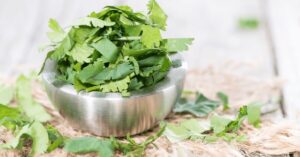
In the vast, intricate ecosystem of our gut resides an array of microscopic entities, collectively known as the microbiome. This complex community of bacteria plays a crucial role in our overall health, influencing everything from digestion to immunity, and even our mood. Among these microbial inhabitants, one particular species, Akkermansia Muciniphila, is steadily gaining the spotlight in scientific research. Its potential to promote optimal wellness and combat numerous health issues has turned this once obscure bacterium into a gut health superstar. Stay with us as we delve into the fascinating world of Akkermansia and discover why it’s a true hero in our gut microbiome.
What is Akkermansia Muciniphilia?
Akkermansia Muciniphila is a microbial species that resides in the mucus layer that lines our gut. This unique environment serves as a habitat and source of nourishment for this bacterium, enabling it to grow and thrive. The mucus layer itself plays a pivotal role in maintaining gut health. It acts as a protective barrier, shielding the gut wall from harmful substances, pathogens, and damage. Moreover, it fosters a beneficial environment for our gut microbiota, facilitating healthy bacterial diversity. Consequently, the mucus layer and its resident bacteria, like Akkermansia, function in harmony, contributing significantly to our digestive health and overall wellbeing.
Mucin: Fuel for Akkermansia
Mucin is a glycoprotein that forms a key component of the mucus layer in our gut. This complex protein structure is densely packed with sugars, providing a rich and nourishing food source, especially for our resident hero, Akkermansia Muciniphila. This bacterium possesses the unique ability to metabolize mucin and use it as an energy source. It adheres to the mucus layer, feeding continuously on the mucin, and proliferating in the process.
The relationship between Akkermansia and mucin is not just about sustenance; it also plays a crucial role in maintaining the structural integrity of the gut wall. As Akkermansia feeds on mucin, it promotes the production of new mucus, ensuring the thickness and continuity of this protective barrier. This continuous regeneration of the mucus layer helps maintain the gut wall’s health, guarding against harmful pathogens and toxins. Thus, the unique metabolic relationship between Akkermansia Muciniphila and mucin contributes significantly to fortifying our intestinal wall, reinforcing its role as a crucial defender of gut health.

Health Benefits of Akkermansia
Akkermansia Muciniphila offers a host of health benefits, many of which stem from its unique metabolic relationship with mucin. Firstly, its ability to fortify the mucus layer contributes to better gut health. A robust mucus layer keeps the gut wall healthy, reducing the risk of conditions such as leaky gut syndrome and inflammatory bowel disease (IBD).
Beyond gut health, Akkermansia has also been linked with weight management. Several studies have shown a benefit between the bacterium’s abundance in the gut and body weight. It is believed that Akkermansia Muciniphila positively affects metabolic health, helping to reduce body weight and combat obesity.
Its metabolic activities also result in the production of short-chain fatty acids (SCFAs), particularly propionate and acetate. These SCFAs contribute to a healthy gut environment and also have systemic effects, such as improving the body’s glucose response and reducing inflammation, which in turn may help mitigate risks of conditions like type 2 diabetes and cardiovascular disease. By enhancing the gut barrier function, it may help regulate immune responses, potentially aiding in the management of autoimmune conditions.
What Causes Low Levels of Akkermansia?
Unfortunately, the levels of Akkermansia Muciniphila can be affected by a variety of factors. Poor dietary choices, such as diets high in processed foods and added sugars, are known to reduce its abundance in the gut. Moreover, certain medications and environmental toxins may also have an adverse effect on the levels of this beneficial bacteria. Antibiotics can significantly impact the levels of Akkermansia. These pharmaceuticals do not discriminate between harmful pathogens and beneficial gut bacteria, often leading to a marked reduction in the population of Akkermansia. This can result in a weakening of the gut barrier and a disruption in the overall gut microbiome, underscoring the need for cautious antibiotic use.
It is important to note that the levels of Akkermansia Muciniphila can vary greatly between individuals. Some may possess a healthy population of this gut hero, while others may experience reduced numbers due to various lifestyle and environmental factors.
How To Boost Akkermansia
Fortunately, there are simple measures one can take to boost the abundance of Akkermansia Muciniphila and restore the optimal levels of this gut hero.
Nutrition
Certain dietary compounds like polyphenols and fiber can help increase Akkermansia’s population. Polyphenols are a group of plant compounds with antioxidant properties. They are found in various foods such as fruits, vegetables, nuts, seeds and dark chocolate. Their antioxidant characteristics can defend against oxidative stress in the gut, fostering an environment conducive for Akkermansia’s growth.
Fiber, especially prebiotic fiber, also plays an important role in supporting Akkermansia Muciniphila. Prebiotics are specific plant fibers that beneficially nourish the good bacteria already present in the gut. Studies have shown that a diet rich in prebiotic fibers can foster the growth of Akkermansia, aiding in maintaining a healthy gut microbiome. Consuming a fiber-rich diet and incorporating polyphenol-containing foods can thus be a natural and effective way to support the flourishing of this vital bacterium.
Intermittent Fasting
Intermittent fasting, a dietary pattern that cycles between periods of fasting and eating, has been linked to increased levels of Akkermansia Muciniphila. During fasting periods, the body enters a state of autophagy, where it starts to clean out damaged cells and regenerate newer, healthier ones. This cleanup process extends to the gut, leading to the regeneration of the mucus layer. In this refreshed environment, the mucin-loving Akkermansia Muciniphila finds an abundance of its preferred food, helping it to proliferate.
Moreover, intermittent fasting helps in reducing inflammation and enhancing gut barrier function, both of which create an environment conducive for the growth of beneficial bacteria such as Akkermansia.
Akkermansia Probiotic Supplementation
Another method to boost the presence of Akkermansia Muciniphila in the gut is through probiotic supplementation. Akkermansia Muciniphila probiotic supplements deliver live Akkermansia bacteria directly to the gut. Preliminary studies suggest that taking Akkermansia probiotics is safe, and can have significant health benefits, including weight loss, improved gut health, and better metabolic profile. Probiotics containing Lactobacillus and Bifidobacterium strains, for example, have been shown to promote a balanced gut microbiome, which in turn encourages Akkermansia growth.
Cranberry Extract
Cranberry extract is another promising agent that can help boost the levels of Akkermansia Muciniphila. Cranberries are rich in polyphenols, and studies have shown that the polyphenolic compounds found within cranberries can foster the growth of Akkermansia in the gut.
These antioxidant compounds help reduce oxidative stress in the gut, creating a favorable environment for the growth of Akkermansia. In particular, these polyphenols are thought to encourage the production of mucin, the preferred food of Akkermansia, thus promoting its proliferation.
Moreover, research suggests that cranberry extract may also have a prebiotic-like effect, promoting the overall health of the gut microbiome. This, in turn, supports the growth and proliferation of beneficial gut bacteria, including Akkermansia Muciniphila.
Green Tea Extract
Green tea extract is another powerful tool to promote the proliferation of Akkermansia Muciniphila. This extract is derived from the leaves of the Camellia sinensis plant and is known for its potent antioxidant properties. These antioxidants, notably the polyphenol called epigallocatechin gallate (EGCG), have been found to help increase the abundance of Akkermansia in the gut.
EGCG works by reducing gut inflammation and enhancing the gut barrier function, promoting a healthy environment where Akkermansia Muciniphila can thrive. Moreover, green tea extract can help to stimulate the production of mucin, an important nutrient source for Akkermansia.
Research has also indicated that green tea extract may have a prebiotic effect. It can help to support the overall balance of the gut microbiome, encouraging the growth of beneficial bacteria and suppressing the harmful ones. This overall positive effect on gut health makes green tea extract a valuable addition to a regimen designed to boost Akkermansia Muciniphila levels. Incorporating green tea extract, whether through diet or supplementation, can therefore significantly contribute to the health and diversity of the gut microbiota, including the population of Akkermansia.
Discover Your Akkermansia Levels Using Advanced Functional Lab Testing
Have you ever wondered about the population of Akkermansia Muciniphila residing in your gut? Unraveling the mystery of your gut microbiome is now possible, thanks to the advent of advanced functional lab testing.
With a simple, yet comprehensive stool test, we can illuminate the hidden universe living within us. Imagine being able to identify the specific strains of bacteria populating your gut, including our gut hero – Akkermansia Muciniphila. A stool test provides a detailed map of your gut microbiome, helping you understand its current state, identify any imbalances, and reveal your levels of Akkermansia.
The process of stool testing is straightforward and can be done from the comfort of your home. The test kit is delivered to your doorstep, you provide a sample, and send it back to the lab. The real magic lies in what happens in the lab—skilled laboratory scientists employ cutting-edge technology, including genomics and big data analysis, to decode the secrets concealed in your sample. (Reach out to the office to order your test kit).
The results you receive are a treasure trove of information, opening a new chapter in your health journey. From these findings, you’ll discover your Akkermansia levels, learn about other crucial gut bacteria, and get insights on how to optimize your gut health. The power to improve your health, boost your Akkermansia, and unleash your gut’s potential lies in your hands. Embark on this exciting voyage of discovery today, and let the gut revolution begin!

Free Digestive Blueprint
Schedule a Free Digestive Blueprint session with Dr. Ryan If you’re ready to elevate your gut health. During this one-on-one session, you’ll have the opportunity to explore your unique needs and goals in greater detail—and receive a step by step plan to optimize your digestive health.








